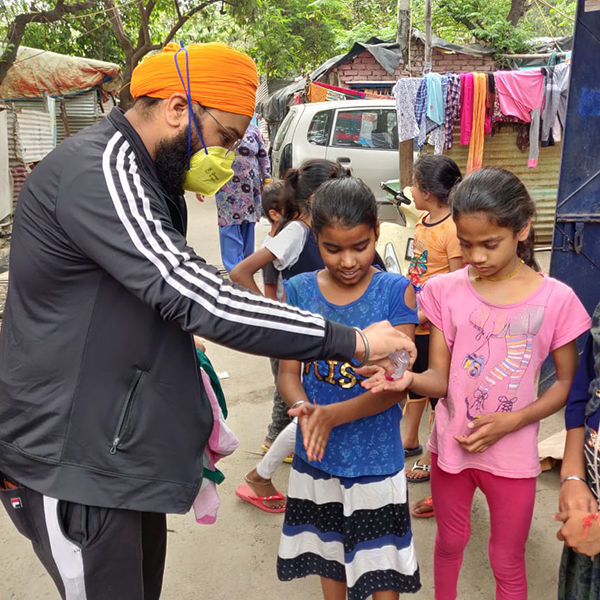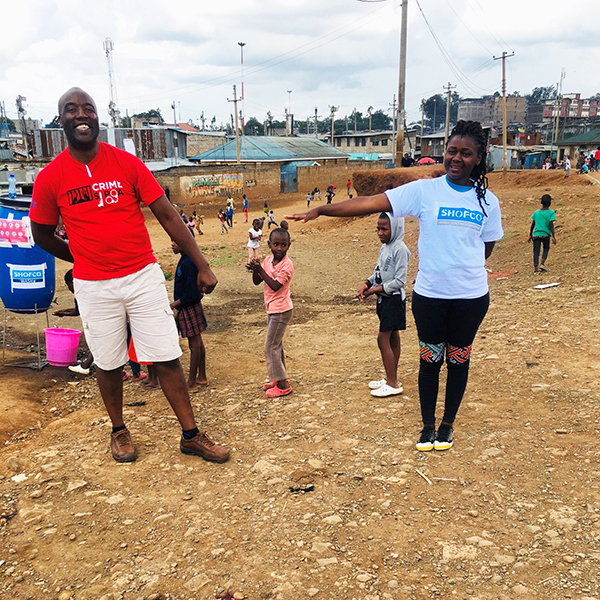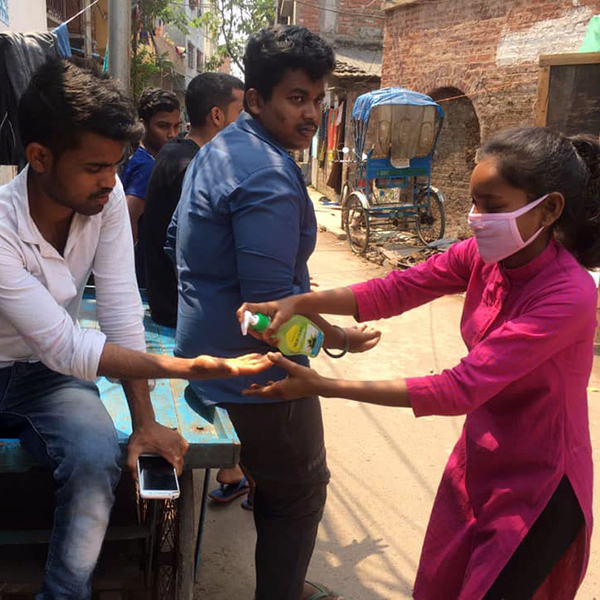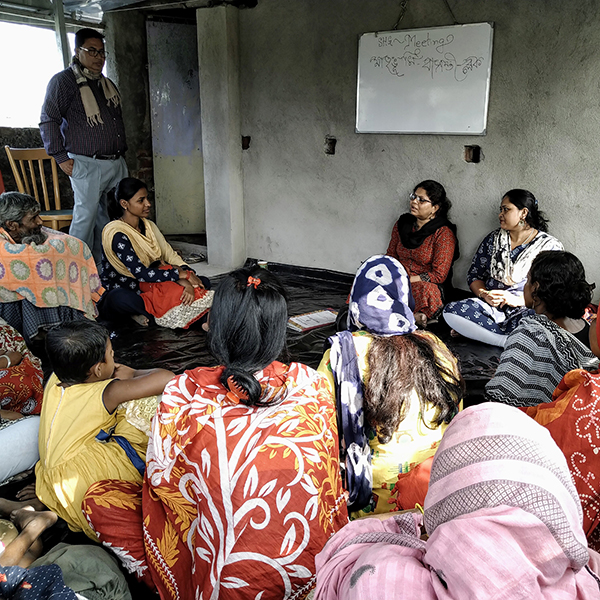The coronavirus is having a devastating impact on women and children in India’s red-light districts, including sex workers and girls at risk of exploitation. GFC’s Indrani Chakraborty spoke with several current and alumni GFC partners to learn more.
“I was passing by the Kalighat red-light area, the day before the nation went into a lockdown due to COVID-19. As my car flew past and away from the area, keeping me at a safe social distance from the crowd, I saw a few prostituted women with their masks on. They were waiting for their customers.
“It felt like someone had slapped me hard across the face and the sound kept echoing in my soul.” – Apne Aap Women Worldwide
Experience from past outbreaks and disasters shows that marginalized people are most gravely affected, and COVID-19 is no exception. The fast spread of the coronavirus forced the Indian government to close the nation’s border for 21 days.
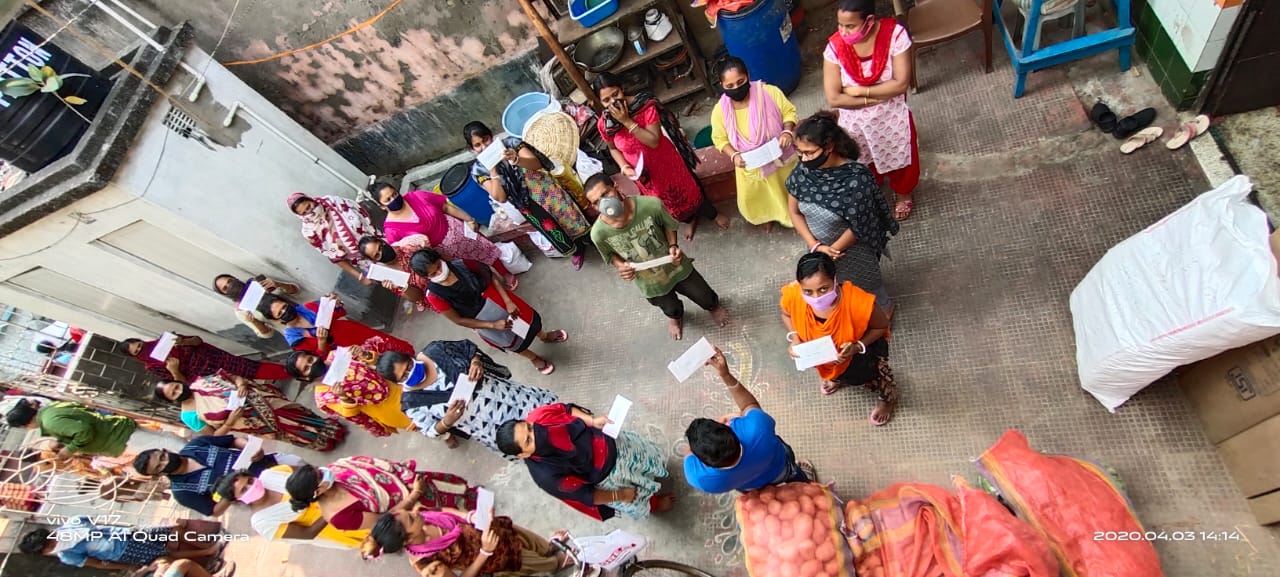
NGOs in India are flooded with requests for help from women facing myriad problems at home, now further exacerbated by COVID-19. Women are experiencing an increase in gender-based violence, especially domestic violence, due to tension and stress in the household. The victims are bound to stay with their perpetrators, which puts them at even greater risk of abuse and exploitation.
“After a long time, migrant men are coming back, and when they demand to establish a sexual relationship with their wives, women have to send their children outside the home because there are nine to ten people living in an eight-by-ten foot room – a living situation that might seem impossible to many but has become a new normal. Refusal of their husbands would lead them to more violent behavior.” – Suprava Panchashila Mahila Uddyog Samity (SPMUS)
Women working in red-light districts are also facing extreme risks and marginalization – due to stigma, discrimination, and criminality associated with their work – which have been exacerbated by COVID-19.
Some live permanently in the red-light districts, while others come from rural or suburban areas to rent rooms and see clients. When the lockdown was announced, these women could not return to their homes. Now, they are forced to stay in the red-light areas in overcrowded, unsanitary conditions.
The police have closed the red-light areas and are monitoring them to ensure that no one goes in or out. Crammed into small, squalid rooms, the women – and their children – are facing a shortage of food, no income, and an absence of precautionary measures from COVID 19.
Segregation and isolation are the most important precautionary measures – and they are essentially impossible in the red-light areas. Most families cannot even afford to buy soap or hand sanitizer.
When the nation was preparing for lockdown and people were busy in hoarding daily necessities and hygiene materials, these women had no extra money to buy things and store them. When they tried to access government support, they were told to submit citizenship documents, which many of them don’t have.
Most women working in the red-light districts were trafficked on the pretext of employment and marriage, and ended up in brothel. They have been forced into sex work to escape poverty, and in many cases, their family members are now also dependent on them.
Now, with business coming to a standstill, they are unable to support their extended families or pay rent. Even as lockdown restrictions ease, they will have to bear the burden of paying back the entire amount to their landlords and madams.
The reality is that most of them have almost no savings to fall back on. They may be compelled to borrow money, putting themselves in a never-ending debt trap. Moreover, once the lockdown ends, they will be forced to take customers, compromising on safe sex practices in order to earn more money, in turn creating even more health and safety concerns.
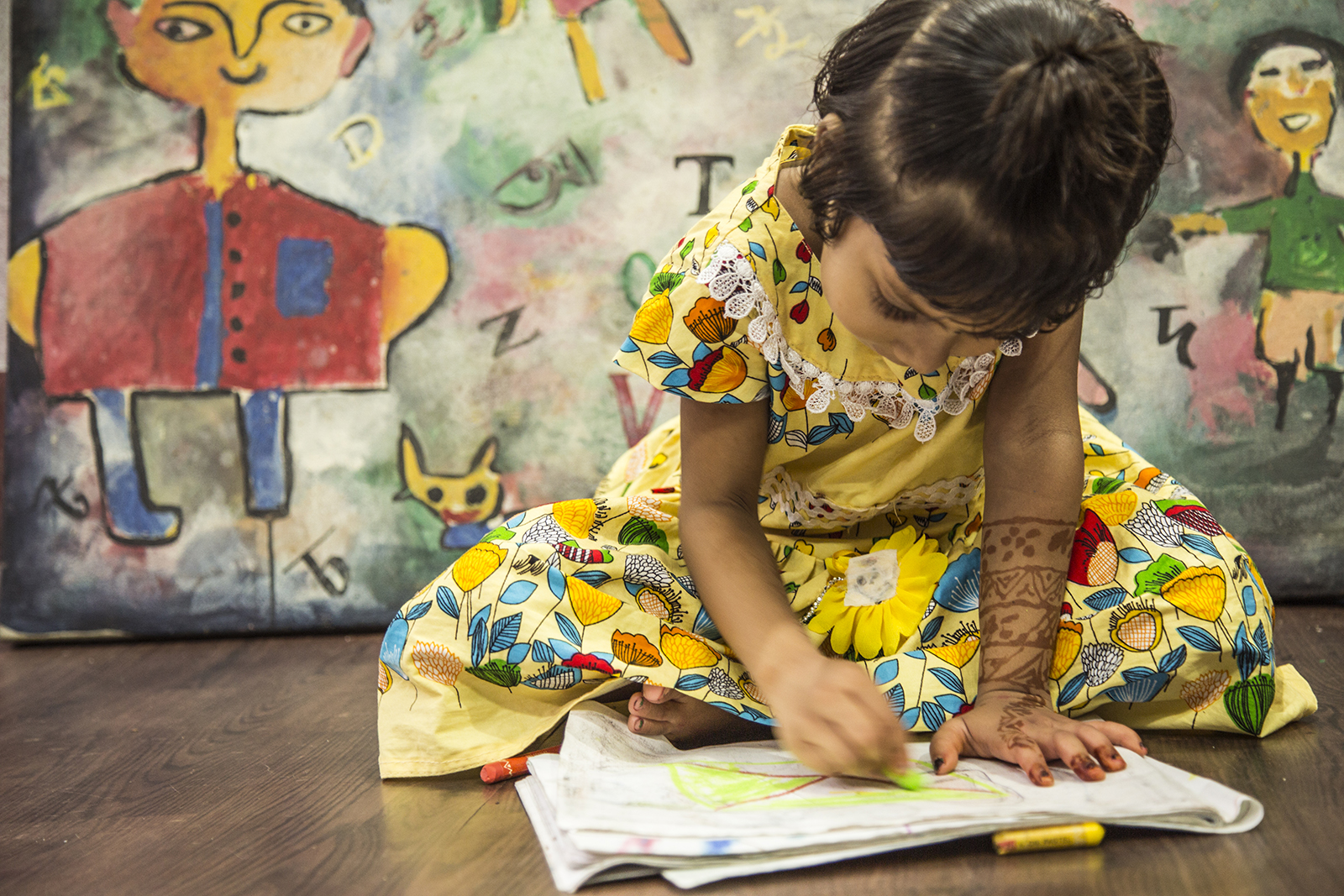
Children in red-light areas are also facing tremendous challenges. Prior to the pandemic, most children were living with their mothers in the brothels, sometimes going to school during the day, sometimes roaming the streets while their mothers work.
But with schools closed, the children must stay inside the ill-ventilated brothel rooms with their mothers, unable to maintain social distancing and other precautionary measures. They are no longer receiving the crucial meals that their government schools provided.
Another inevitable impact of this pandemic will be a surge in child trafficking, as happened just after the 2004 tsunami in Southern Asia and the 2015 earthquake in Nepal.
After the coronavirus is under control, people will be jobless or underemployed, leaving them vulnerable to fake promises of better future. Families are lured by the offer of better paid work for their children in places that may be completely unknown to them.
Traffickers will use this opportunity to offer some advance payment to parents or other family members. The disruption in the state and civil society institutions and child protection mechanisms put children at high risk and in a very vulnerable situation. Girls living in the red-light districts are especially at risk, as their mothers may sell them off to get out of debt.
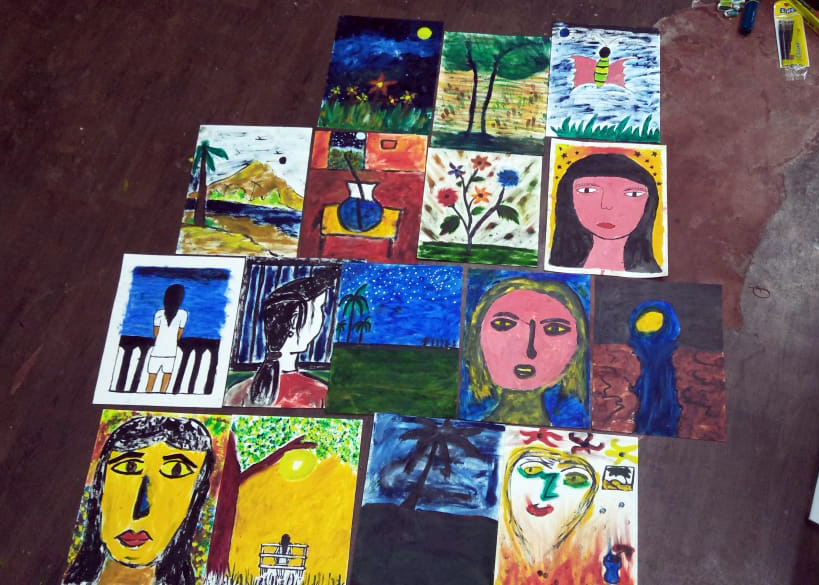
GFC partners offer crucial support
In the post COVID era, the utmost priority should be on identifying vulnerable pockets and initiating or strengthening efforts to prevent trafficking. The state systems, especially village and neighborhood child protection committees, should monitor, report on, and respond to issues of child protection and promote a child-friendly and safe community environment.
All the GFC partners I spoke with agreed that providing suitable livelihoods as alternatives to prostitution could support these women to face this disaster in a much better way, not only now, but also in the future.
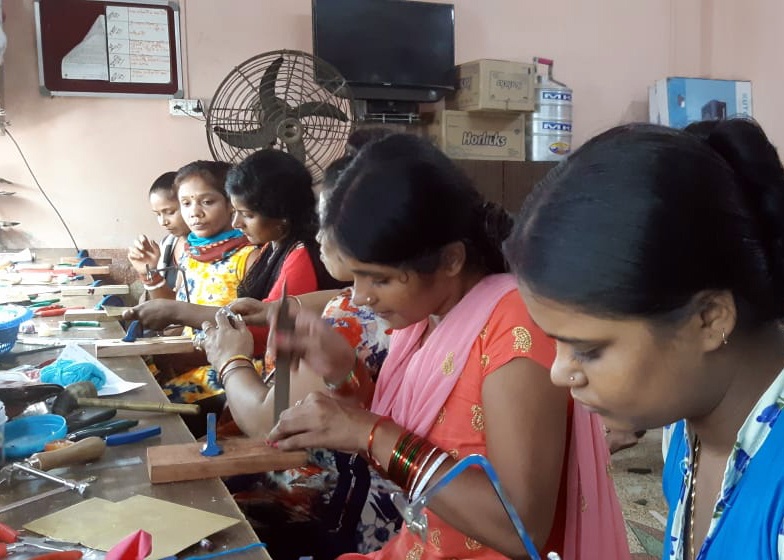
In this context, South Kolkata Hamari Muskan (SKHM), a GFC alumni partner in Kolkata, has created a “Dignity Group” with a few former sex workers, helping them to find paid work in entrepreneurship and childcare. SKHM helped the women to leave prostitution and equipped them with skills training and small business funding.
Purnata, a GFC partner in Mumbai, has set up a comprehensive training unit and is in the process of exploring alternative economic opportunities for women in prostitution.
GFC partners are also providing short-term relief to children and families in vulnerable communities, including essential food and sanitation supplies.
For example, SPMUS is providing food to children in the Dhuliyan red-light area and in three villages, where people mostly work as daily laborers. In Kolhapur, Avani has started distributing cooked foods among the brick kiln workers and their children and in waste picking communities. They have also started a temporary shelter for 350 children and women, in addition to their permanent shelter.
Faith Foundation in Shillong is going to start supporting families in the Ri-bhoi community of Meghalaya, which has been designated by the government as having especially poor socio-economic indicators.
In addition to these services, our partners will continue sharing crucial information on ensuring child safety and prevention of child sexual abuse. The contributions of local organizations like these in times of crisis cannot be overstated. GFC is proud to support them as they work to keep children healthy, safe, and cared for.
This report was prepared based on interviews with the current and alumni GFC partners Purnata, AAWW, SPMUS, and South Kolkata Hamari Muskan. Header photo: A street scene in Sonapur, a red-light district in Mumbai, where GFC partner Purnata works to end human trafficking. © Rahul Verma / Purnata
GFC has launched an Emergency Response Fund to support partners in India and beyond to help keep children safe during the coronavirus epidemic. Donate to support children affected by the coronavirus.
